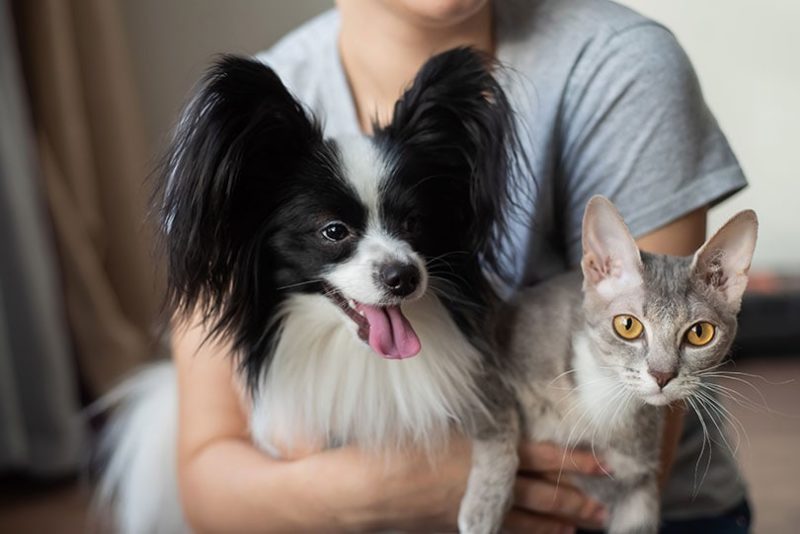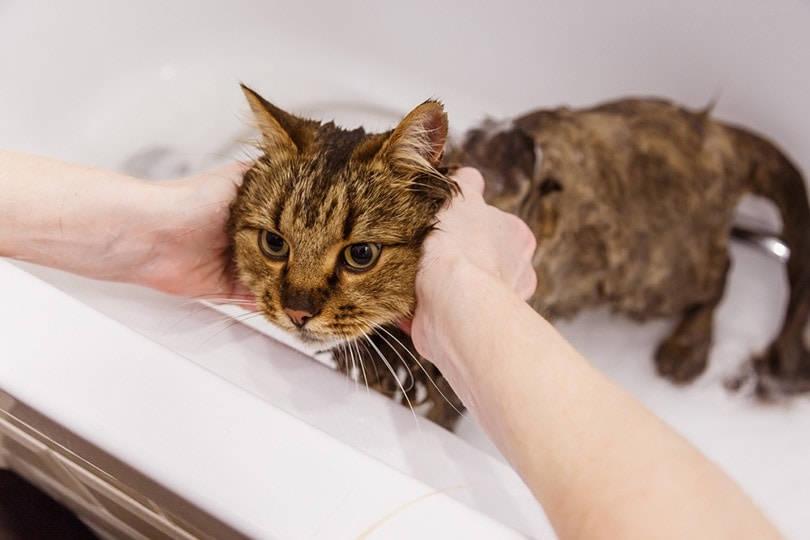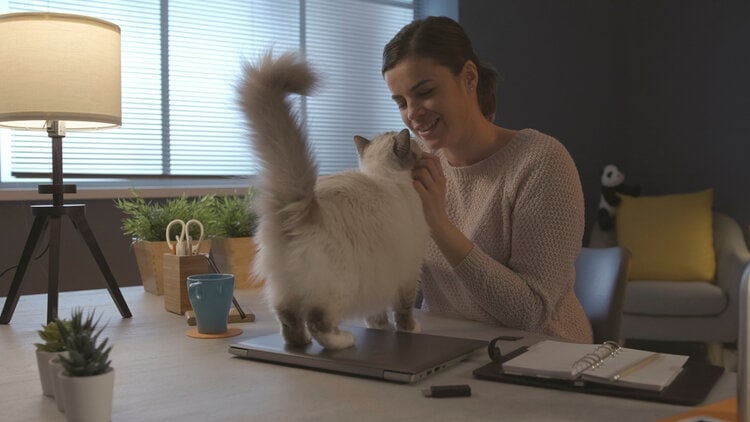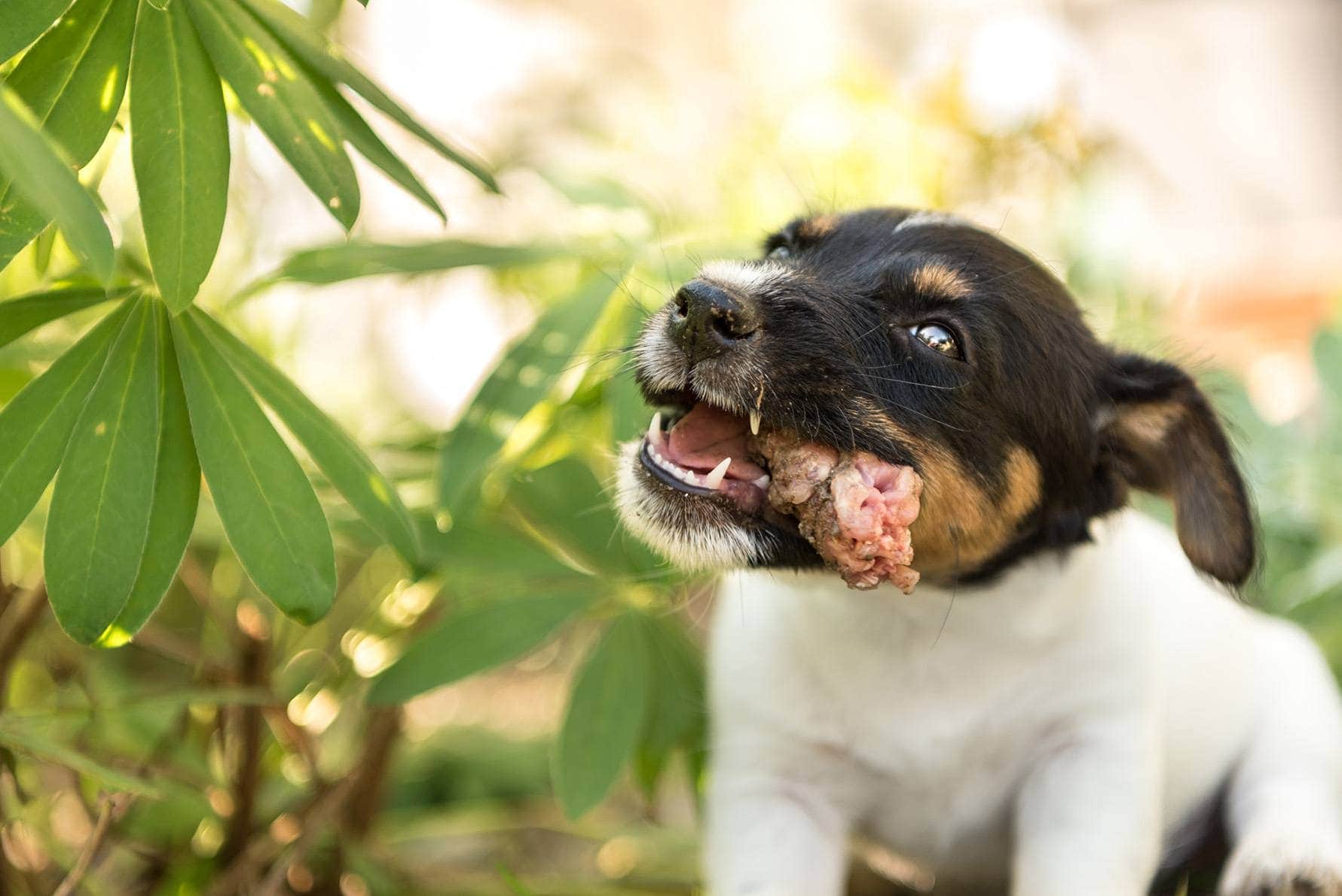Why Do Cats Yowl? 8 Reasons for This Behavior
By Luxifa Le
Updated on

We’ve all experienced it. When you’re sleeping peacefully only to be awoken by your cat, Princess, who has decided to sing you the song of her people at 3:30 AM (or is that just us?). But just why does she do that? What drives this behavior in cats? There’s a good reason for it, too! Here are eight reasons that Princess has decided to serenade you tonight.
Attention-Seeking Behaviors
No need for alarm! There are plenty of non-threatening reasons that your cat might be yowling endlessly in your ear. That doesn’t mean that your cat is seriously ill, but take a deep breath and think about it before you rush them to the emergency vet.
1. They’re hungry.
Humans have derived particular words for the emotional state of prolonged hunger in the modern world, like ‘hangry,’ and cats are not immune to these feelings. You might not have missed a meal yet, but that doesn’t mean your cat hasn’t noticed that her bowl is empty and taken exception to it nonetheless. Check the clock and see when the last time your cat ate was. We know ours can get a bit hangry if the bowl has been emptied for too long!

2. They’re lonely.
People often associate cats with cold and aloof behavior, but this couldn’t be further from the truth. Cats need social interaction just like people do, and maybe your cat just misses you and wants you to know it. They don’t show affection the same way that people or dogs do, so people often miss the signs that their cat just wants to hang out with them because they aren’t used to what they look like.
3. They’re greeting you.
Not all cats will vocalize their greetings, but some do. Some breeds, like the Siamese, are particularly talkative and seem to have conversations with their owners. Your cat may just be telling you about her day, and it would probably mean a lot to her if you listened to her story about that pesky bird that keeps taunting her outside the window!
4. They’re stressed.
Getting a little scary now; sometimes cats verbalize when they’re stressed out. Have you recently moved? Started a new job? Bought a new pillow? Cats don’t like change, and they may begin to get stressed out when faced with unavoidable modifications.
Health-Related Reasons
Sometimes a cat does vocalize for health reasons, so it’s important to consider whether or not they have any signs of health problems that you should be on the lookout for.
5. Aging
Many cats start to vocalize more as they age. Much like people, they want to complain and tell you about “when they were your age,” but all we seem to hear is “meow meow meow!” If your cat is getting older, it might be a good idea to get them an extra check-up nonetheless, but some cats just want to complain in their old age, and we should allow them to spend their golden years as they please.
6. Mating
“But my cat is spry and young!” Well, are they fixed? Cats yowl to signal that they’re “in the mood” and order to attract mates (nature is weird). If your cat is neutered and still seems to be displaying characteristic mating behaviors, worry not! Many of these behaviors are part of regular play and socialization for cats. For male cats who had experience playing the field (if you know what we mean) before being neutered, these behaviors may persist for weeks to years after their surgery.
However, if your male cat does seem to be going “above and beyond” the regular play when it comes to mounting, Nicholas Dodman, a board-certified Veterinary Behavioral Specialist from the American College of Veterinary Behaviorists, has a theory for you. He explains that masculinization begins in the womb and, as with many animals, cats gestate litters, not singular kittens. He posits that a male cat may have been exposed to more testosterone in the womb, which leaves him with residual behaviors characteristic of an intact male after neutering. Such a cat (or dog!) becomes, as he puts it, “a super-male Romeo” whose sisters (or brothers!) may become the target of his sexual advances even though he has no experience to draw upon with this behavior.

7. Overactive Thyroid
An overactive thyroid gland has been correlated to excessive vocalization in cats. The thyroid gland is near the larynx, which controls the sounds that we, cats included. So, owners may notice an increase in vocalization or a change in the sound of their cat’s meow. If your usually quiet cat has suddenly taken up a new hobby in yodeling, it might be time to consider taking her to the vet.
8. Kidney Disease
One of the scary things that can be indicated by excessive vocalization is chronic kidney disease. The illness causes discomfort that the cat alerts you to by crying.
Conclusion
Yowling is a normal part of cat living that can have many different causes, some concerning and others benign. The most crucial part of understanding whether it’s a problem is your cat’s previous behavior? Has she loved the sound of her voice from the first time she heard it? Probably nothing to worry about then. But if your cat is uncharacteristically noisy, it might be time to assess their health and determine the next steps!
Featured Image Credit: Vitalii Biliak, Shutterstock










